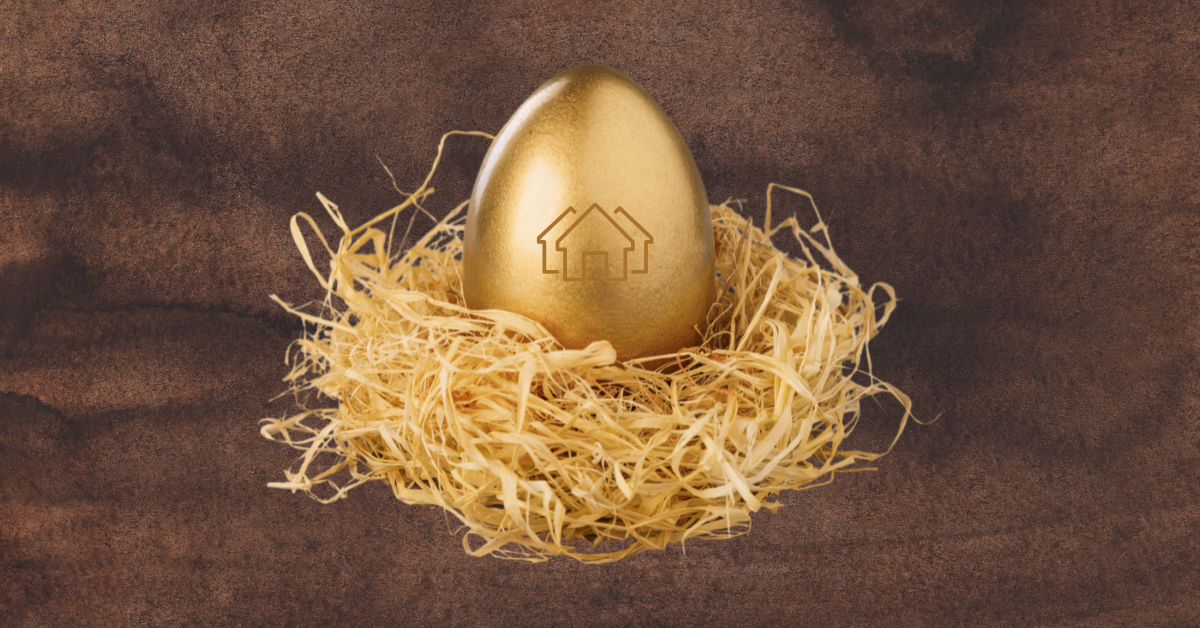A "nest egg" symbolizes a significant amount of money or assets that individuals accumulate over time for future purposes, such as retirement, purchasing a home, funding college educations, or establishing an emergency fund. The term's origins are as intriguing as its meaning, tracing back to the 14th century. Originally, it described the practice of placing a real or decoy egg in a hen's nest to encourage egg-laying, subtly hinting at the concept of generating more over time, much like the principle of earning interest on saved or invested capital.
In the landscape of American finance, where job security can be fleeting and retirement savings are closely tied to one’s employment, having a robust nest egg is not just advisable; it's essential. This safety net offers a peace of mind, ensuring that individuals are not solely reliant on external sources for their retirement.
Among the diverse assets that can comprise a nest egg, real estate stands out as a cornerstone for many. The rationale is straightforward: purchasing property in a prime location and holding onto it allows its value to appreciate over time. Eventually, selling this asset can provide substantial funds, making it possible for retirees, in particular, to maintain or even enhance their lifestyle in a passive manner.

Example of a prime located home:
3808 Latimer Dr, Austin, TX 78732
However, nest eggs are not limited to real estate. They can also include savings accounts, retirement plans such as 401Ks and IRAs, stocks, bonds, and even valuable collectibles. The growth of a nest egg, powered by the magic of compounding, signifies how investments can exponentially increase in value through reinvested earnings, providing a solid foundation for future financial security.
Ultimately, a nest egg is more than just a number in a bank account or the value of a property—it’s a reflection of careful planning, patience, and foresight. Whether built through real estate, retirement accounts, or other investments, a well-nurtured nest egg provides the freedom to make life choices without financial strain. By understanding what a nest egg is and how different assets contribute to it, you can take intentional steps toward securing your financial future.
In real estate specifically, your home or investment property often represents the largest portion of your nest egg, combining potential appreciation with tangible value. Recognizing this connection encourages smarter decisions today that can yield long-term stability and peace of mind tomorrow.
No matter your approach, the key takeaway is clear: start early, stay consistent, and diversify wisely. Your nest egg isn’t just money—it’s the foundation for the life you want to lead.





